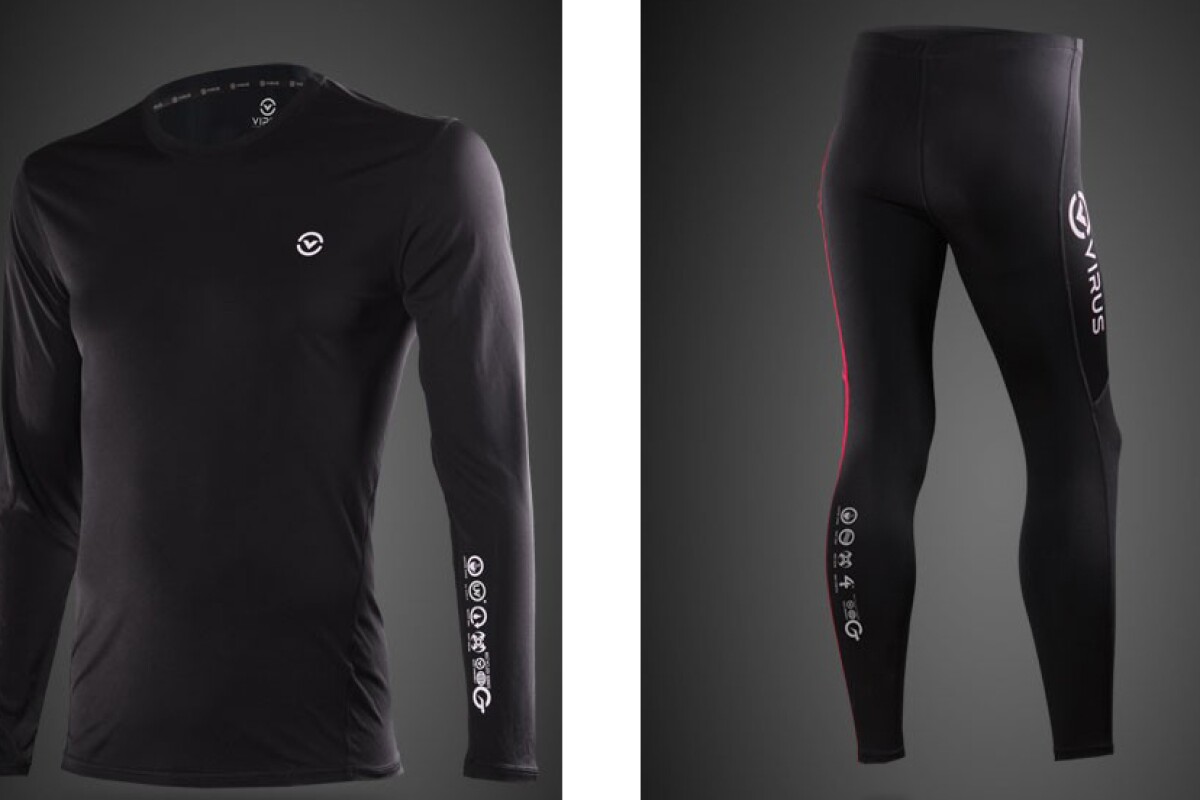
They clearly like a coffee over at Californian sports clothing company Virus. While its employees might order a mocha latte, the company is interested in the grinds. Virus' StayWarm line uses what it calls Coffee Char, or coffee charcoal in the construction of the fabric. The grounds are recycled and processed into a natural fiber to produce a comfortable base layer fabric that traps heat close to the skin.
According to Virus, tests have shown that the garments' heat trap increases surface temperature by 10 degrees Fahrenheit and no chemical treatments or applications are used to provide these insulation properties.
While Stay Warm keeps you warm, it still wicks moisture away from skin. When body heat turns up the temperature and perspiration levels, additional features of the garment kick in. These include UV shielding and anti-odor properties that fight stink - a function that the company says is due to the selection of compounds woven into the fabric that deter the growth of microbes.
One word of warning, use the Stay Warm clothing as a first layer, but wear layers on top. A wind-breaking layer is advisable in order to keep cold air from breaking through the barrier of warmth.
Virus showed its Stay Warm line, in addition to another line that cools with jade called StayCool, at the Snowsports Industries America (SIA) show last week in Denver, Colorado.
The nine items currently in the Virus Action Sport Performance Stay Warm line include the Coffee Charchoal Long Sleeve Fitted top for US$38; Long Sleeve Compression Crew Neck for $48; Men's All Weather Performance Boxer for $30.50; Men's Stay Warm Boot Cut ¾ Length Compression Pant for $54.50 and a Men's Stay Warm Form Core Warmer Sleeveless Top for $60.99.
Comments
Post a Comment